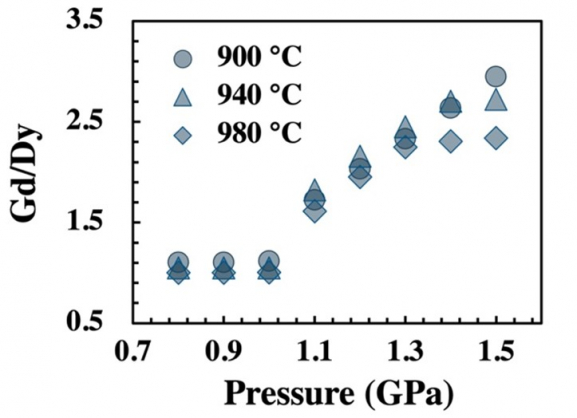 HKU Department of Earth Science
HKU Department of Earth Science
Seminar

Formation of Archean continental crust: insights from the Gd/Dy ratios of TTG rocks
-
Date
March 28,2023
-
Time
3:30PM
-
Venue
JL104
-
Speaker
Mr. Ruining YAO (Supervisor: Prof. Guochun ZHAO) Department of Earth Sciences, HKU
The Archean continental crust is mainly composed of tonalite-trondhjemite-granodiorite (TTG) rocks. Experimental studies have established that these TTG rocks can be generated by partial melting of basaltic rocks. The pressure of partial melting is always constrained by thermodynamic modeling and linked with tectonic setting. However, different studies used different source compositions and partition coefficients, which result in different pressure constraints and tectonic setting interpretations.
In this study, I am trying to establish a melt Gd/Dy ratio-based barometer for TTG petrogenesis by thermodynamic modeling. Gd/Dy is used because it is less affected by source water content (Sr/Y), source enrichment (La/Yb), or entrainment of residual garnet (Gd/Yb). Compared with previous work on the thermodynamic modeling of TTG petrogenesis, I spent more time to constrain the source composition for TTG rocks by analyzing experimental data about partial melting of basaltic rocks and differentiation trends about basaltic magmas. In addition, the effect of temperature on partition coefficients is considered. From my preliminary results, most TTG rocks seem to be formed at pressures of 1.1 GPa - 1.3 GPa. This pressure constraint is consistent with the pressures of the bottom of Archean oceanic plateaux and seems to be too low for the subducted Archean oceanic crust to be hot enough to melt even if subduction did occur in the Archean. Therefore, mantle plume is a more likely tectonic setting for TTG generation and the formation of Archean continental crust.
Additional information: Mr. Ruining YAO, geochem@connect.hku.hk
